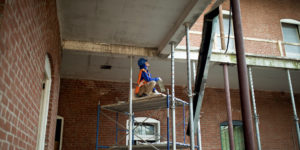
A new bill has been introduced in the Colorado legislature this month under the name SB 20-138. This bill will potentially amend the current statute of repose for claim regarding construction defects. If implemented, these changes will have a serious impact on the timing and scope of defect claims in the state of Colorado.
Changes to Colorado construction defect laws
The bill, introduced by Colorado Senator Robert Rodriguez, will make some drastic modifications to the current laws concerning the statute of limitations and statute of repose for construction defect claims. If this bill is ultimately implemented, it will provide some significant changes to the current law under C.R.S. §13-80-104. Particularly concerning the statute of limitations and statute of repose for construction defect claims.
Statute of Repose for defect claims
A statute of repose sets out a specified time period in which a claimant must file an action, regardless of when the injury occurred. When it comes to construction defects, these time limits are meant to relieve a contractor from indefinite liability for work performed. Each state has their own statutes of repose. Around the country, this can range from as little as 4 years in Florida to as long as 15 years (Iowa).
Current Colorado law
In Colorado, the current defect claim statute of repose begins to run from the date of substantial completion of the improvement to real property. Once substantial completion is achieved, a defect claim must be made within 6 years. However, if the cause of action arises in the 5th or 6th year after substantial completion, the action must be brought within two years from that date.
Proposed changes
If the bill passes, the time to file a construction defect claim can potentially be extended up to 12 years from substantial completion. The default time period under this bill would change to 10 years. But the time to file a claim can be extended by 2 years if the cause of action arose in the 9th or 10th year after substantial completion. This change will grant property owners another 4 years to file a claim for construction defects.
Statute of Limitations for defect claims
A statute of limitations also establishes a certain time period in which a claim can be made. However, the clock begins to tick on a statute of limitations when the injury or cause of action arises. Regarding construction defects, most states’ defect statute of limitations begin to run under the “discovery rule.” The typical language looking similar to “from the time the claimant discovers, or by reasonable diligence, should have discovered, the cause of action.”
Current Colorado law
The statute of limitations for Colorado construction defect claims is currently 2 years from when the claim for relief “arises.” As for what constitutes when a claim arises, the statute of limitations begins to run from when the claimant discovers, or in the exercise of reasonable diligence, should have discovered the physical manifestations of the defect in the improvement which ultimately causes the injury. This rule is fairly on par with the majority of state defect statute of limitation provisions.
Proposed changes
Under the proposed changes, the 2-year timeframe will remain intact. However, the definition of when a claim arises will differ substantially. The new amendments would state that a claim arises when the claimant discovers or should have discovered the defect, and discovered the cause of the defect in the improvement that ultimately causes the injury. This is a particularly unique requirement in the construction defect realm and is in stark contrast to how most defect claims have been litigated in Colorado.
This provision now adds an extra requirement that must be met before a party has a cause of action in the first place. Discovering the defective work is only half the battle, the cause of the defective work must also be identified before a claim can be brought.
If these changes go into effect, they will have a substantial impact on defect litigation, contractor liability, property owner rights, and the Colorado construction industry as a whole. It remains to be seen if this bill will eventually be enacted – or even what it may look like if it does. We’ll keep an eye out and be sure to inform you of any updates.
Note: This bill was just recently introduced. Special thanks to David McLain at Higgins, Hopkins, McLain, & Roswell, LLC for reporting this first, see his post for a full breakdown.